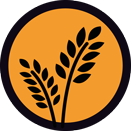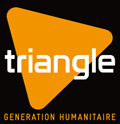AREA OF EXPERTISE

Food security and livelihoods

AREA OF EXPERTISE

Food security and livelihoods
FUNDING
The project is a continuation of the work already carried out by TH in DRPK, as it co-finances another programme in food security currently being implemented in South Hamgyong Province, in Hamju and Jongpyong counties, funded by the European Union (DEVCO), which started in May 2019 for a period of 36 months.
The project is implemented in two agricultural farms located in Pungsong and Sondok. These farms mainly produce cereals and vegetables and contribute to the food supply of Hamju and Jongpyong. However, these farms are extremely vulnerable to climatic hazards that can negatively impact agricultural yields. As a result, they are unable to meet the nutritional needs of the population.
The objective of this project is to reduce food insecurity through the strengthening of agricultural production systems to increase the production of vegetables for rural families and child institutions, through three components:
A first component which aims to support the market gardening activities of cooperatives farms, through the distribution of seed kits and tools (shovels, plastic sheeting, watering cans…), and the setting up of a monitoring system to ensure the correct use of the tools and seeds distributed, but also to provide technical support and monitor production.
A second component which consists in supporting vegetable production through the improvement of composting techniques with, in particular, the construction of composters, the distribution of small equipment (compost activators, thermometers), the organization of training courses, in partnership with the Academy of Agricultural Sciences (AAS) in Pyongyang, to promote the appropriation and dissemination of composting as a soil fertilization technique and to improve the resilience of agricultural cooperatives to climatic hazards (crop rotation methods, sheltered cropping systems and fodder production).
A third component which aims to provide support to child institutions in order to improve the nutritional quality of meals, with the distribution of a grinder for each institution to prepare soy milk, the training of canteen staff in good food hygiene and nutritional practices, in partnership with the Child Nutrition Institute (CNI), and the distribution of food rations to children during the agricultural lean season.
All of these actions will ultimately increase vegetable production so that cooperative farms can meet their needs and distribute more vegetables to institutions for young children and thus alleviate food insecurity in Hamju and Jongpyong counties.